Home - Laboratory - LUMIÈRE
The LUMIÈRE liquid biopsy group was established in 2023 by a group of clinician-scientists and scientists who were collectively interested in implementing liquid biopsy testing as part of cancer care and in cancer research. The consortium, led by Dr. April Rose, is based at the Jewish General Hospital in collaboration with Dr. Adriana Aguilar, Dr. Mark Basik, Dr. Gerald Batist, Dr. Melica N. Brodeur, Dr. Nathalie Johnson, Dr. Andreas Papadakis, and Dr. Alan Spatz. The McGill Centre for Translational Research in Cancer and OptiLab are central collaborative entities of LUMIÈRE.
LUMIÈRE’s mission is to develop an expertise and to be a center of excellence for liquid biopsy testing in cancer research and cancer care. This covers a large spectrum of liquid biopsy applications and indications, including initial diagnostic molecular profiling, minimal residual disease monitoring, molecular profiling at recurrence and optimizing personalized therapy
The work done within our consortium would not be possible without the support of our funders including AstraZeneca, Pfizer, Teamsters Canada, illumina, and Marathon of Hope Cancer Centres Network and the McGill Center for Translational Cancer Research.
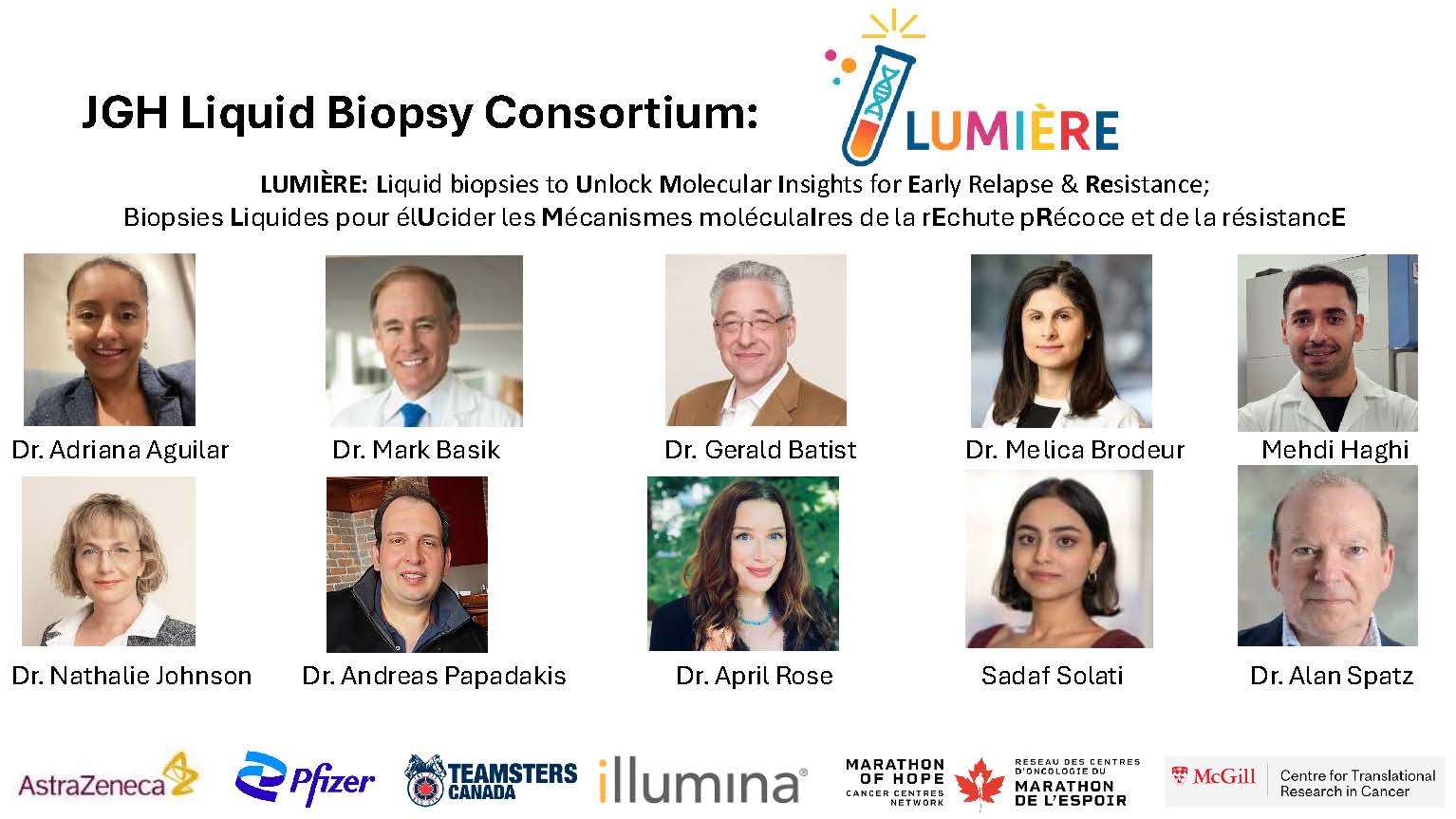
From left to right: Chantal Autexier, Jian Qin, Adrian Young, Patrick Lambert-Lanteigne, Linda Pallotto, Alexandre Garus.
LUMIÈRE has multiple ongoing projects including:
Our team is developing a cutting-edge liquid biopsy platform that enables the detection of minimal residual disease through the analysis of circulating tumor DNA (ctDNA). Using next-generation sequencing of the tumor tissue and highly sensitive digital droplet PCR (ddPCR) assays tailored to each patient’s tumor, we can track tumor-specific mutations in blood samples over time. This approach allows us to monitor treatment response, identify early signs of recurrence, and improve personalized therapy decisions by helping to guide therapy. Our research focuses particularly on breast cancer, where we have demonstrated the prognostic and predictive value of ctDNA in triple negative breast cancer patients in two independent clinical trials (Q-CROC-03 and TRICIA). We are now extending this work to Her2+ and ER+ breast cancer patients as well as ovarian, bladder and colorectal cancers.
Metastatic prostate cancer is characterized by a wide array of therapeutically actionable genetic alterations or mutations. Our current standard practice is to determine whether these mutations are present in archival tumor tissue. But by only testing archival tissue, we may be missing some of these potentially actionable alterations. The goal of the MUPPET project is to evaluate whether liquid biopsy (ctDNA testing) improves the diagnostic accuracy for detecting these genetic alterations in patients with metastatic prostate cancer. The project will also develop preclinical models of therapy-resistant prostate cancer and test novel targeted therapy treatments that are designed to overcome resistance.
This project aims to establish and validate the use of circulating cell-free DNA (cfDNA) testing as a minimally invasive approach to guide treatment decisions in metastatic colorectal cancer (mCRC). By comparing cfDNA and tissue-based molecular profiling, the study will evaluate concordance of biomarkers, turnaround time, and clinical impact. It also seeks to integrate cfDNA testing into routine practice across Quebec, leveraging real-world evidence (RWE) to support its adoption as a reimbursed standard-of-care test.
Lymphoma, a cancer of the immune system, presents a complex treatment challenge. Chemotherapy, the current standard, can cure approximately half of patients. For those with relapsed aggressive lymphoma, immunotherapies such as chimeric antigen receptor T cells (CART) are effective in some patients, but increased tumor burden is associated with lower response rates and increased toxicities. Our project uses a custom gene panel to detect residual circulating tumor DNA (ctDNA) in the blood with the aim to detect early resistance to therapy, before patients become symptomatic from overt clinical relapse. By analyzing plasma samples from patients with aggressive lymphomas treated with chemotherapy and second line CAR-T, we aim to personalize treatment timing. This personalized approach could significantly improve efficacy and decrease toxicity of immunotherapies by intervening earlier, when tumor burden is low, providing better care to patients and potentially reducing health care costs.
This project explores whether ctDNA testing can replace invasive tissue biopsies for identifying ovarian cancer patients who would benefit from PARP inhibitor maintenance therapy or other targeted therapy. The expected outcome is a faster, less invasive diagnostic approach to improve access to targeted therapy and patient outcomes. Furthermore, this project aims to monitor ctDNA levels during PARP inhibitor treatment to understand the kinetics of ctDNA overtime and how it correlates to outcomes. The antiicpated outcome is personalized therapy duration, reduction in treatment-related toxicity. For more jnformation, please contact The Gynecologic Oncology Research Lab.
The MINGLE project aims to transform cancer diagnosis and treatment by integrating artificial intelligence (AI), whole slide imaging (WSI), and cfDNA-based genomics into a unified multimodal platform. Using breast cancer as the model, it seeks to validate AI-powered pathology classifiers that predict actionable genomic mutations, enhance prognostication, and guide therapy selection through real-world (RW) data integration.
Contemporary research has uncovered a role for environmental copper in the development and progression of neurodegenerative diseases such as Alzheimer’s and Parkinson’s disease. Previous research implicated non-ceruloplasmin bound copper in the aggravation of neurodegenerative phenotypes. Our research explores the role of copper in ALS progression through monitoring of copper biomarkers and analyses of copper metabolism gene expression.
Lorem ipsum dolor sit amet consectetur adipisicing elit. Maxime mollitia, molestiae quas vel sint commodi repudiandae consequuntur voluptatum laborum numquam blanditiis harum quisquam eius sed odit fugiat iusto fuga praesentium optio, eaque rerum! Provident similique accusantium nemo autem. Veritatis obcaecati tenetur iure eius earum ut molestias architecto voluptate aliquam nihil, eveniet aliquid culpa officia aut! Impedit sit sunt quaerat, odit, tenetur error, harum nesciunt ipsum debitis quas aliquid. Reprehenderit, quia. Quo neque error repudiandae fuga? Ipsa laudantium molestias eos sapiente officiis modi at sunt excepturi expedita sint? Sed quibusdam recusandae alias error harum maxime adipisci amet laborum. Perspiciatis minima nesciunt dolorem! Officiis iure rerum voluptates a cumque velit quibusdam sed amet tempora. Sit laborum ab, eius fugit doloribus tenetur fugiat, temporibus enim commodi iusto libero magni deleniti quod quam consequuntur!
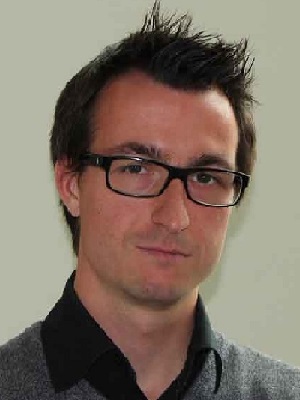
I obtained my BSc in pharmacology at University of Sherbrooke and graduated from University of Montreal with a MSc in pharmaceutical sciences in Prof. Huy Ong’s laboratory developing a ligand screening method for the CD36 receptor using SPR (surface plasmon resonance) biosensor. I then worked for Prof. Arnim Pause at McGill University trying to elucidate the interaction pattern between the folliculin protein with its binding partner AMPK. I then joined Prof. Chantal Autexier’s laboratory as a research assistant where I work in telomere biology, manage the lab and mentor undergraduate and graduate students. I helped characterize the binding pocket of two telomerase domain/motifs, IFD and TEN, with its binding partner TPP1, and I now focus on the telomerase-independent alternative lengthening of telomere mechanism.
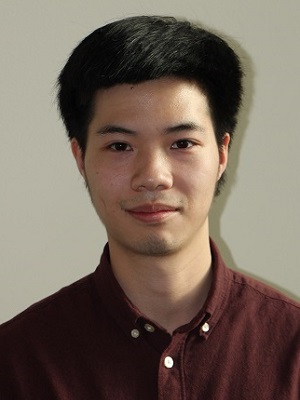
I received a BSc in Molecular Biology & Genetics from McMaster University in 2017. I am currently studying how mutations of dyskerin, a telomerase-associated protein, affect its interaction with other proteins, subcellular localization, and telomerase RNA abundance.

I am a Belizean pursuing a PhD in Anatomy and Cell biology at McGill University in Montreal. I completed my BSc in Biochemistry and Cellular and Molecular Biology and my MSc in Biochemistry at Memorial University in Newfoundland Canada. My research interest involves increased understanding stem and cancer cell dynamics and redox biology to be applied to therapeutics for health span extension.
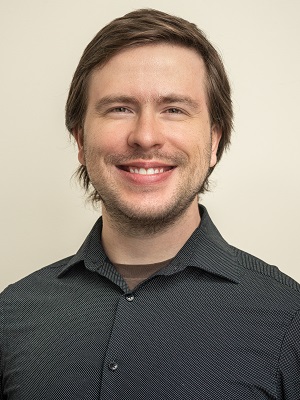
I come from Brazil, where I graduated in Biochemical Engineering at the Federal University of Paraná. I have more than four years of professional experience in manufacturing and quality assurance of reagents for molecular diagnostics. Now I’m interested in better understanding the role of the protein dyskerin and H/ACA ribonucleoprotein complexes in regulating telomere biology and cellular aging.
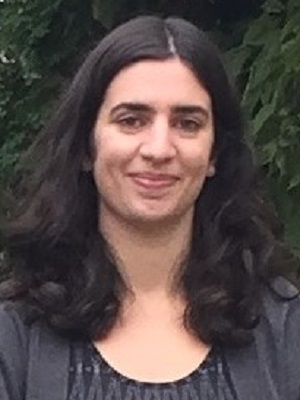
Linda completed her BSc in Biology at the University of Waterloo. During her undergraduate degree, she worked as a co-op student in the lab of Dr. Paul Mains where her project used C. elegans to describe gene variants that cause drug resistance in parasitic nematodes. After graduating, she worked for a year in the lab of Dr. Ryan Yuen at SickKids in Toronto investigating short tandem repeat expansions using Nanopore and Sanger sequencing. She is now pursuing her MSc in the Autexier lab and is interested in how a region of telomerase, known as the insertions in fingers domain (IFD), is involved in its localization and activity at the telomeres. When not in lab, Linda enjoys listening to music or watching movies while she knits.
Madelyn is a PhD student in the department of Experimental Medicine. She uses mouse modelling to study Diffuse Large B Cell Lymphoma. In particular, she has found that mutations in the transcription factor STAT6 are enriched at disease relapse, and I study how this contributes to remodeling of the tumour microenvironment.
Rowa is a PhD candidate in the department of Experimental Medicine. She completed her BSc in Microbiology and Immunology in Saudi Arabia, then completed two MScs in Genetics and Parasitology at McGill University. Her work investigates tungsten toxicity focusing on SLC2A2 as a transporter and the effects on mature B lymphocytes.
Vincenza is an MSc. Student in the Department of Pharmacology. She completed her BSc. in Pharmacology at McGill University. Her project aims to elucidate the role of e-cigarette use on the murine cardiopulmonary system. Specifically, she is focusing on metal deposition in the lungs, and the progression of atherosclerosis due to these exposures.
Nazli Zengin is an MSc. student in the Department of Pharmacology. She has a background in pharmacology and environment. Her work currently focuses on elucidating how sex and diet modulate arsenic toxicity and its immunological and cardiovascular consequences.
Andrew is an MSc. student in the Department of Pharmacology who graduated from the B.Sc. program in Biochemistry at McGill in 2021. He works on a proteomics project centred around Arsenic 3-Methyltransferase and the question about whether it serves an additional function.
Raymond is an MSc. Student in the Department of Pharmacology who completed his BSc. in Environmental Health Sciences from the UNC Chapel Hill as a as a Morehead-Cain Scholar. He received the McCall MacBain Scholarship in 2021. His project studies the mechanism of tungsten on mTORC1, a major regulator of cell growth and proliferation.
Nikola is an incoming MSc Student who completed his undergraduate degree in
Microbiology and Immunology at McGill University. He is currently working on an NSERC
summer project that assesses the functional characterization of macrophages exposed to arsenic using murine bone marrow-derived macrophages.
Roni is a second-year BSc student in Chemistry at McGill. As an undergraduate student, she works on various projects across the lab, but is currently focused elucidating the correlation between nonalcoholic fatty liver disease and vaping.
In 2025, The LUMIERE group acquired a NovaSeq 6000 sequencer and all initial quality control test were performed. The MUPPET study was activated in August 2025, with results being presented to the Molecular Tumor Board to align patients with targeted therapy based on their ctDNA profiling results. Shortly after, in September 2025 the OVATION study also activated.
Contemporary research has uncovered a role for environmental copper in the development and progression of neurodegenerative diseases such as Alzheimer’s and Parkinson’s disease. Previous research implicated non-ceruloplasmin bound copper in the aggravation of neurodegenerative phenotypes. Our research explores the role of copper in ALS progression through monitoring of copper biomarkers and analyses of copper metabolism gene expression.
Lorem ipsum dolor sit amet consectetur adipisicing elit. Maxime mollitia, molestiae quas vel sint commodi repudiandae consequuntur voluptatum laborum numquam blanditiis harum quisquam eius sed odit fugiat iusto fuga praesentium optio, eaque rerum! Provident similique accusantium nemo autem. Veritatis obcaecati tenetur iure eius earum ut molestias architecto voluptate aliquam nihil, eveniet aliquid culpa officia aut! Impedit sit sunt quaerat, odit, tenetur error, harum nesciunt ipsum debitis quas aliquid. Reprehenderit, quia. Quo neque error repudiandae fuga? Ipsa laudantium molestias eos sapiente officiis modi at sunt excepturi expedita sint? Sed quibusdam recusandae alias error harum maxime adipisci amet laborum. Perspiciatis minima nesciunt dolorem! Officiis iure rerum voluptates a cumque velit quibusdam sed amet tempora. Sit laborum ab, eius fugit doloribus tenetur fugiat, temporibus enim commodi iusto libero magni deleniti quod quam consequuntur!
Dr. Wilson Miller, Lady Davis Institute, Montreal
Dr. Sonia del Rincon, Lady Davis Institute, Montreal
Dr. Carolyn Baglole, RI-MUHC, McGill University, Montreal
Dr. Jun Ding, RI-MUHC, McGill University, Montreal
Dr. Susan Gaskin, Department of Chemical Engineering, McGill University, Montreal
Dr. Bernard Robaire, Department of Pharmacology McGill University, Montreal
Dr. Brandon Pearson, Columbia University, New York
Dr. John Wise, University of Louisville, Kentucky
Melica N. Brodeur
April Rose
Jian Qin
Deanna MacNeil
CIHR CGS-M, CIHR Doctoral Award, Cole Foundation Studentship
Tsz Wai (Josephine) Chu
Johanna Mancini
FRQS doctoral award, Cole Foundation Studentship
Yasmin D’Souza
May Shawi
CIHR Doctoral Award, Cole Foundation Studentship
Marie Eve Brault
Johans Fakhoury
McGill University Faculty of Medicine Internal Studentship
A few interesting links related to Chantal Autexier, her laboratory and her research themes:
Dr. Wilson Miller, Lady Davis Institute, Montreal
Dr. Sonia del Rincon, Lady Davis Institute, Montreal
Dr. Carolyn Baglole, RI-MUHC, McGill University, Montreal
Dr. Jun Ding, RI-MUHC, McGill University, Montreal
Dr. Susan Gaskin, Dep’t of Chemical Engineering, McGill University, Montreal
Dr. Bernard Robaire, Dep’t of Pharmacology McGill University, Montreal
Dr. Brandon Pearson, Columbia University, New York
Dr. John Wise, University of Louisville, Kentucky
Lorem ipsum dolor sit amet consectetur adipisicing elit. Maxime mollitia, molestiae quas vel sint commodi repudiandae consequuntur voluptatum laborum numquam blanditiis harum quisquam eius sed odit fugiat iusto fuga praesentium optio, eaque rerum! Provident similique accusantium nemo autem. Veritatis obcaecati tenetur iure eius earum ut molestias architecto voluptate aliquam nihil, eveniet aliquid culpa officia aut! Impedit sit sunt quaerat, odit, tenetur error, harum nesciunt ipsum debitis quas aliquid. Reprehenderit, quia. Quo neque error repudiandae fuga? Ipsa laudantium molestias eos sapiente officiis modi at sunt excepturi expedita sint? Sed quibusdam recusandae alias error harum maxime adipisci amet laborum. Perspiciatis minima nesciunt dolorem! Officiis iure rerum voluptates a cumque velit quibusdam sed amet tempora. Sit laborum ab, eius fugit doloribus tenetur fugiat, temporibus enim commodi iusto libero magni deleniti quod quam consequuntur!
3755, Côte Ste-Catherine Road
Montreal, Quebec H3T 1E2
Email: